The Complete Timeline of LGBTQ+ Civil Rights Expansion in Michigan, 50 Years in the Making
“I’m feeling pretty equal today.” – Buzz Thomas, chair of Equality Michigan
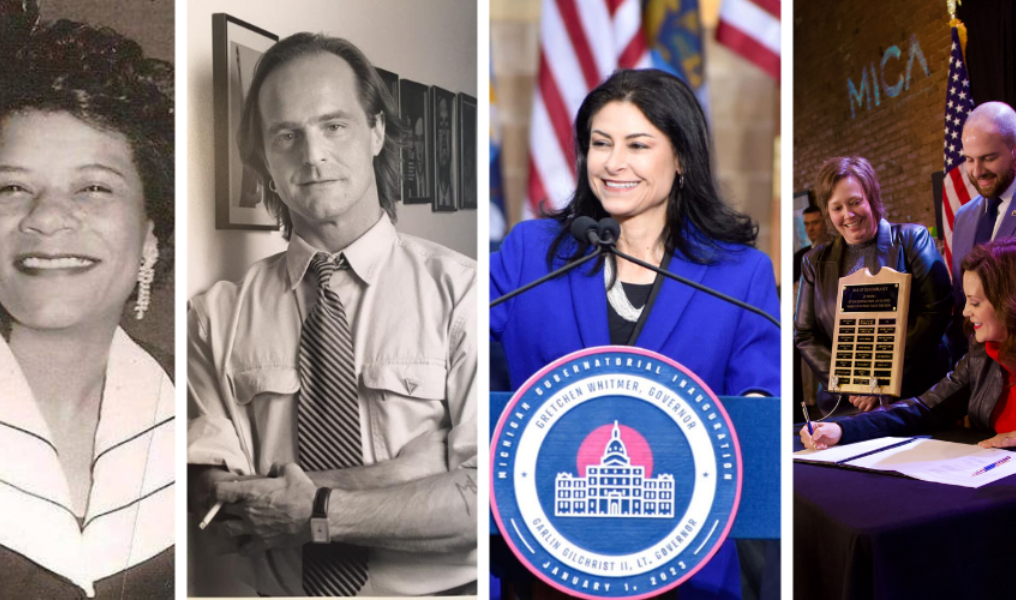
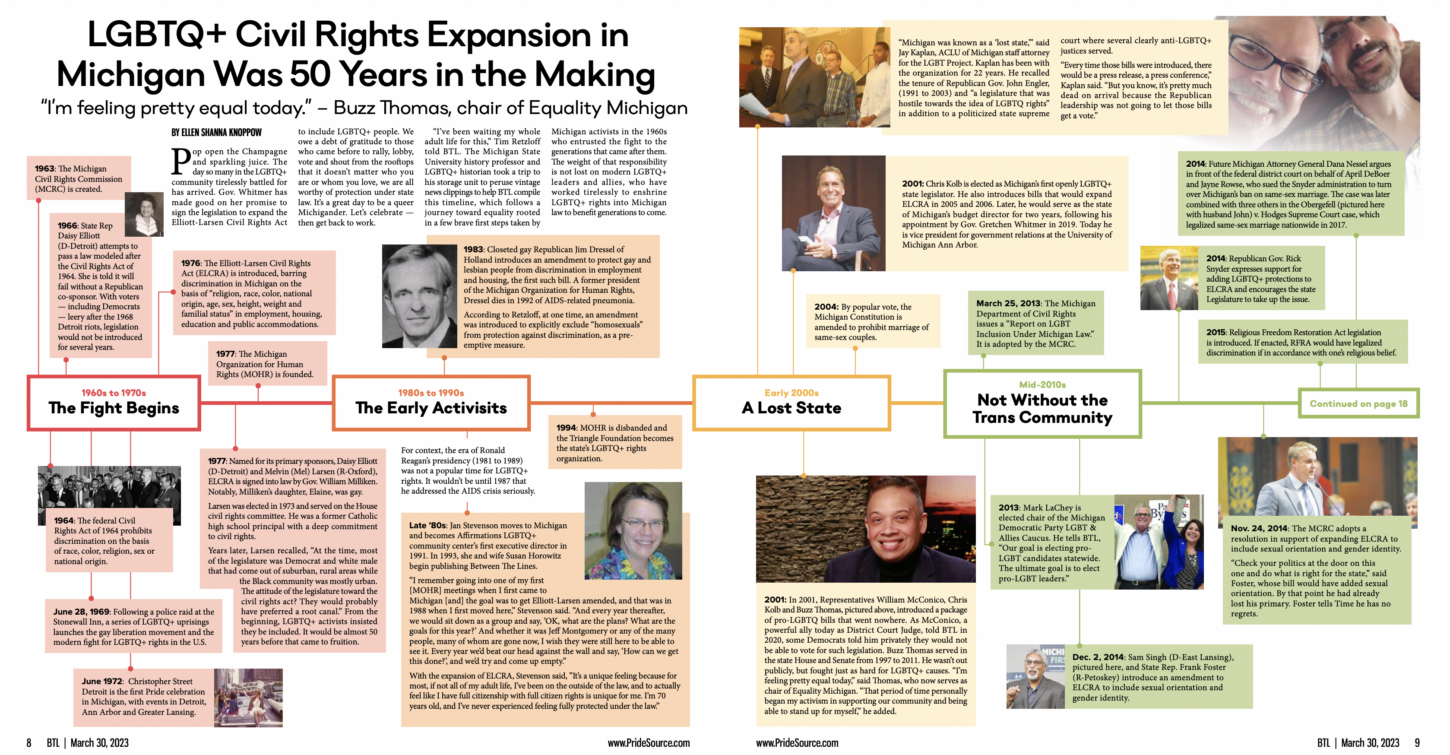
Pop open the Champagne and sparkling juice. The day so many in the LGBTQ+ community tirelessly battled for has arrived. Gov. Whitmer has made good on her promise to sign the legislation to expand the Elliott-Larsen Civil Rights Act to include LGBTQ+ people. We owe a debt of gratitude to those who came before to rally, lobby, vote and shout from the rooftops that it doesn’t matter who you are or whom you love, we are all worthy of protection under state law. It’s a great day to be a queer Michigander. Let’s celebrate — then get back to work.“I’ve been waiting my whole adult life for this,” Tim Retzloff told Pride Source. The Michigan State University history professor and LGBTQ+ historian took a trip to his storage unit to peruse vintage news clippings to help Pride Source compile this timeline, which follows a journey toward equality rooted in a few brave first steps taken by Michigan activists in the 1960s who entrusted the fight to the generations that came after them. The weight of that responsibility is not lost on modern LGBTQ+ leaders and allies, who have worked tirelessly to enshrine LGBTQ+ rights into Michigan law to benefit generations to come.
1960s-1970s: The Fight Begins
1963:
The Michigan Civil Rights Commission (MCRC) is created.
1964:
The federal Civil Rights Act of 1964 prohibits discrimination on the basis of race, color, religion, sex or national origin.
1965:
The Michigan Department of Civil Rights is formed to support the work of the MCRC.
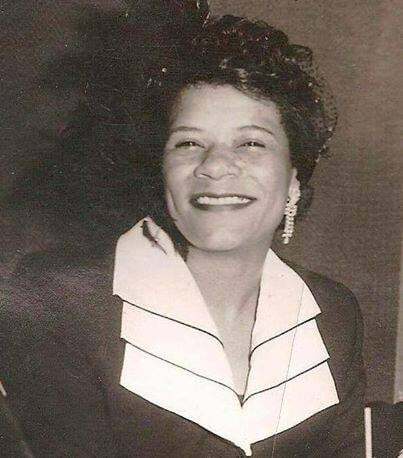
State Rep Daisy Elliott (D-Detroit) attempts to pass a law modeled after the Civil Rights Act of 1964. She is told it will fail without a Republican co-sponsor. With voters — including Democrats — leery after the 1968 Detroit riots, legislation would not be introduced for several years.
June 28, 1969:
Following a police raid at the Stonewall Inn, a series of LGBTQ+ uprisings launches the gay liberation movement and the modern fight for LGBTQ+ rights in the U.S.
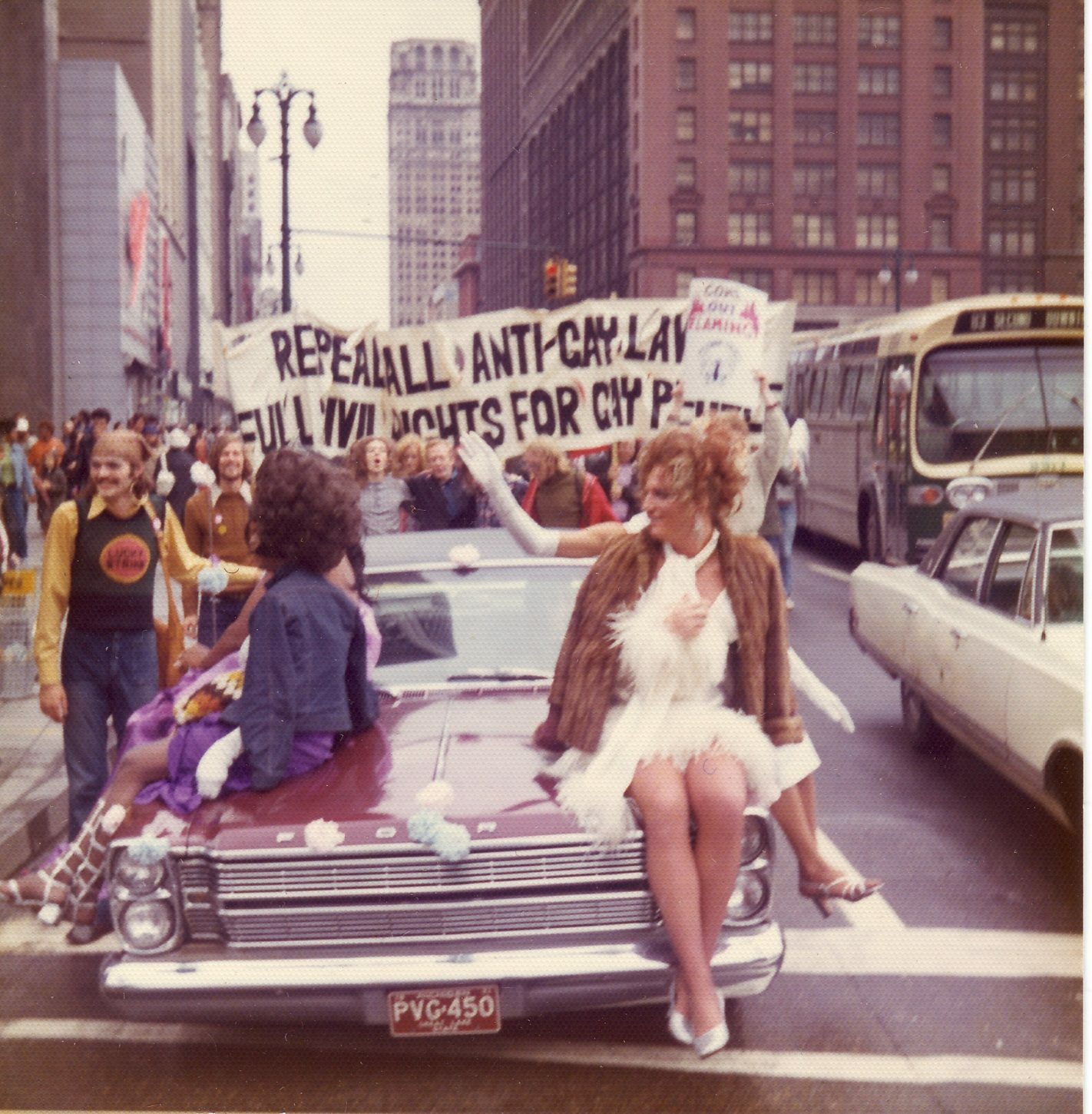
June 1972:
Christopher Street Detroit is the first Pride celebration in Michigan, with events in Detroit, Ann Arbor and Greater Lansing.
1976:
The Elliott-Larsen Civil Rights Act (ELCRA) is introduced, barring discrimination in Michigan on the basis of “religion, race, color, national origin, age, sex, height, weight and familial status” in employment, housing, education and public accommodations.
1977:
Named for its primary sponsors, Daisy Elliott (D-Detroit) and Melvin (Mel) Larsen (R-Oxford), ELCRA is signed into law by Gov. William Milliken. Notably, Milliken’s daughter, Elaine, was gay.
Larsen was elected in 1973 and served on the House civil rights committee. He was a former Catholic high school principal with a deep commitment to civil rights.
Years later, Larsen recalled, “At the time, most of the legislature was Democrat and white male that had come out of suburban, rural areas while the Black community was mostly urban. The attitude of the legislature toward the civil rights act? They would probably have preferred a root canal.” From the beginning, LGBTQ+ activists insisted they be included. It would be almost 50 years before that came to fruition.
1977:
The Michigan Organization for Human Rights (MOHR) is founded.
1980s to 1990s: The Early Activists
For context, the era of Ronald Reagan’s presidency (1981 to 1989) was not a popular time for LGBTQ+ rights. It wouldn’t be until 1987 that he addressed the AIDS crisis seriously.
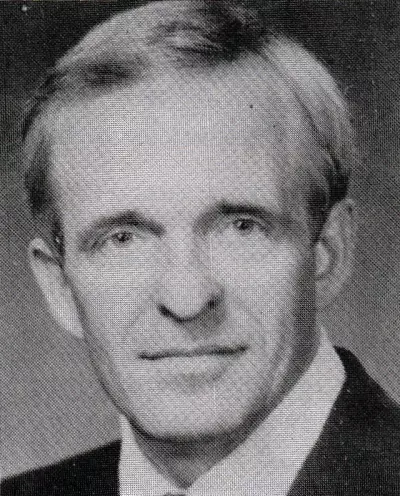
1983: Closeted gay Republican Jim Dressel of Holland introduces an amendment to protect gay and lesbian people from discrimination in employment and housing, the first such bill. A former president of the Michigan Organization for Human Rights, Dressel dies in 1992 of AIDS-related pneumonia.
According to Retzloff, at one time, an amendment was introduced to explicitly exclude “homosexuals” from protection against discrimination, as a preemptive measure.
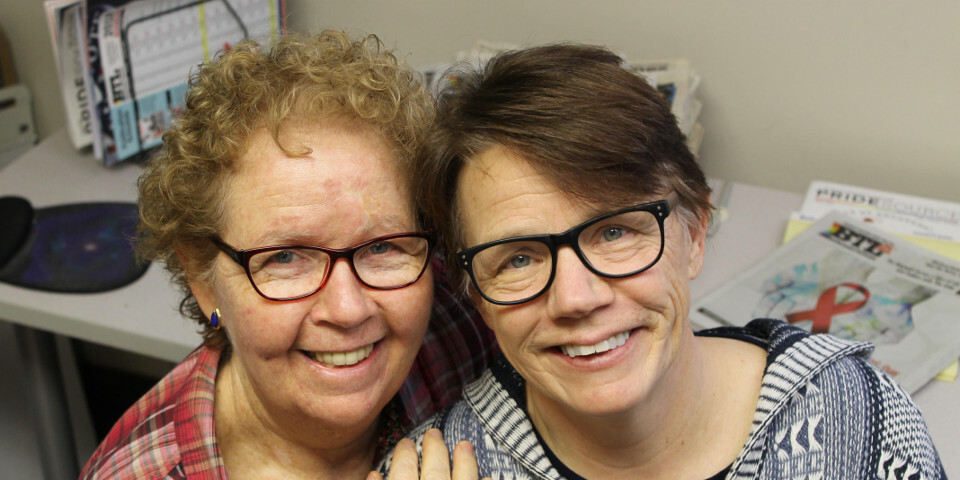
Late '80s: Jan Stevenson moves to Michigan and becomes Affirmations LGBTQ+ community center’s first executive director in 1991. In 1993, she and wife Susan Horowitz begin publishing Between The Lines.
“I remember going into one of my first [MOHR] meetings when I first came to Michigan that the goal was to get Elliott-Larsen amended, and that was in 1988 when I first moved here,” Stevenson said. “And every year thereafter, we would sit down as a group and say, ‘OK, what are the plans? What are the goals for this year?’ And whether it was Jeff Montgomery or any of the many people, many of whom are gone now — I wish they were still here to be able to see it. Every year we'd beat our head against the wall and say, ‘How can we get this done?’, and we'd try and come up empty.”
With the expansion of ELCRA, Stevenson said, ”It's a unique feeling because for most, if not all of my adult life, I've been on the outside of the law, and to actually feel like I have full citizenship with full citizen rights is unique for me. I'm 70 years old, and I've never experienced feeling fully protected under the law.”
1994:
MOHR is disbanded and the Triangle Foundation becomes the state’s LGBTQ+ rights organization.
Early 2000s: A Lost State
“Michigan was known as a ‘lost state,’” said Jay Kaplan, ACLU of Michigan staff attorney for the LGBT Project. Kaplan has been with the organization for 22 years. He recalled the tenure of Republican Gov. John Engler, (1991 to 2003) and “a legislature that was hostile towards the idea of LGBTQ rights” in addition to a politicized state supreme court where several clearly anti-LGBTQ+ justices served.
“Every time those bills were introduced, there would be a press release, a press conference,” Kaplan said. “But you know, it's pretty much dead on arrival because the Republican leadership was not going to let those bills get a vote.”
2001:
Representatives William McConico, Chris Kolb and Buzz Thomas introduced a package of pro-LGBTQ bills that went nowhere. As McConico, a powerful ally today as District Court Judge, told Pride Source in 2020, some Democrats told him privately they would not be able to vote for such legislation. Thomas served in the state House and Senate from 1997 to 2011. He wasn't out publicly, but fought just as hard for LGBTQ+ causes. “I’m feeling pretty equal today,” said Thomas, who now serves as chair of Equality Michigan. “That period of time personally began my activism in supporting our community and being able to stand up for myself,” he added.
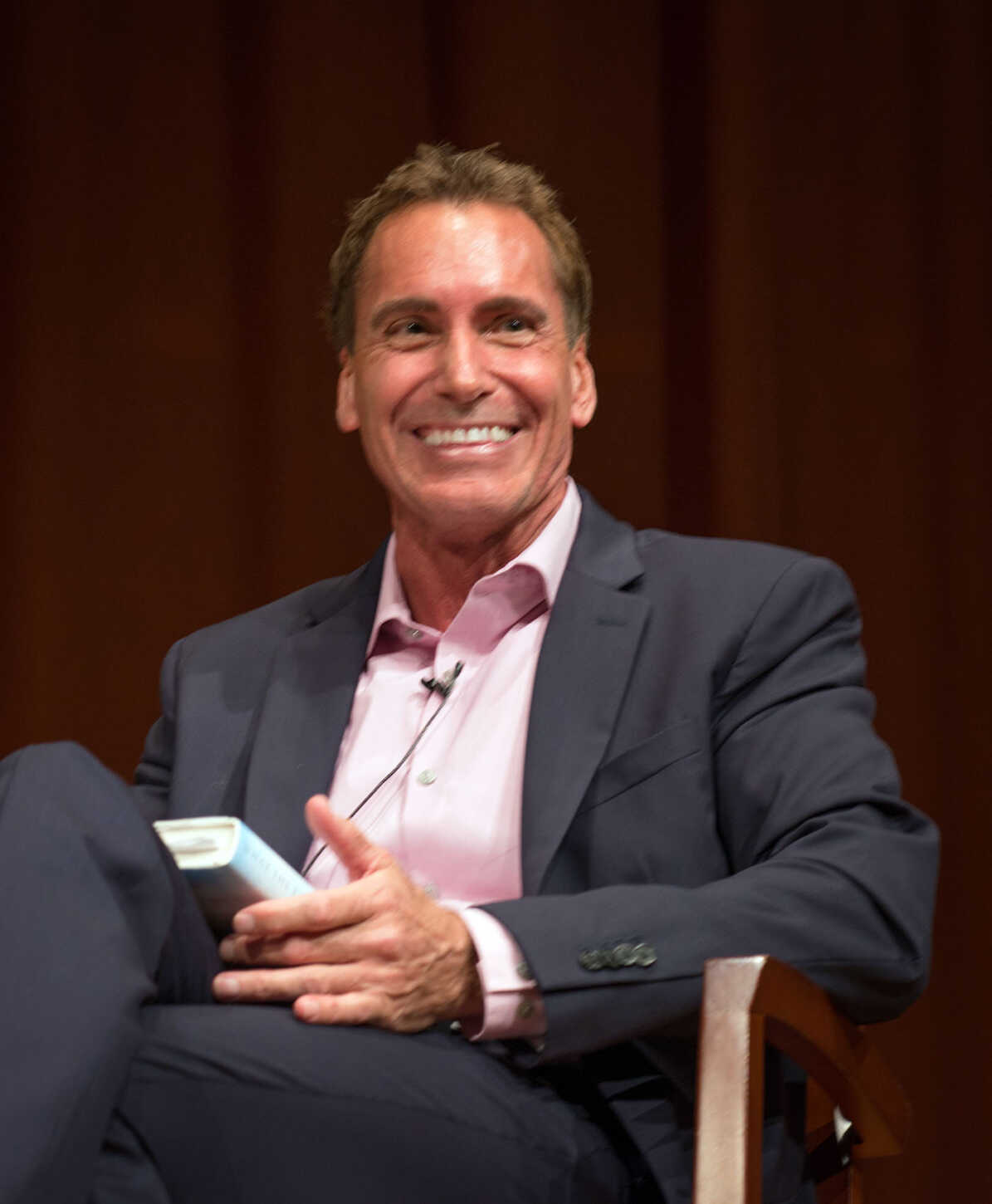
2001: Chris Kolb is elected Michigan’s first openly LGBTQ+ state legislator. He is the first of many co-sponsors of an ELCRA bill that year, introduced by Rep Patricia "Pan" Godchaux. Kohl also introduces bills that would expand ELCRA in 2003 and 2005. Later, he would serve as the state of Michigan’s budget director for two years, following his appointment by Gov. Gretchen Whitmer in 2019. Today he is vice president for government relations at the University of Michigan Ann Arbor.
2004:
By popular vote, the Michigan Constitution is amended to prohibit marriage of same-sex couples.
Mid-2010s: Not Without the Trans Community
March 25, 2013:
The Michigan Department of Civil Rights issues a “Report on LGBT Inclusion Under Michigan Law.” It is adopted by the MCRC.
2013:
Mark LaChey is elected chair of the Michigan Democratic Party LGBT & Allies Caucus. He tells Pride Source, “Our goal is electing pro-LGBT candidates statewide. The ultimate goal is to elect pro-LGBT leaders.”
Nov. 24, 2014:
The MCRC adopts a resolution in support of expanding ELCRA to include sexual orientation and gender identity.
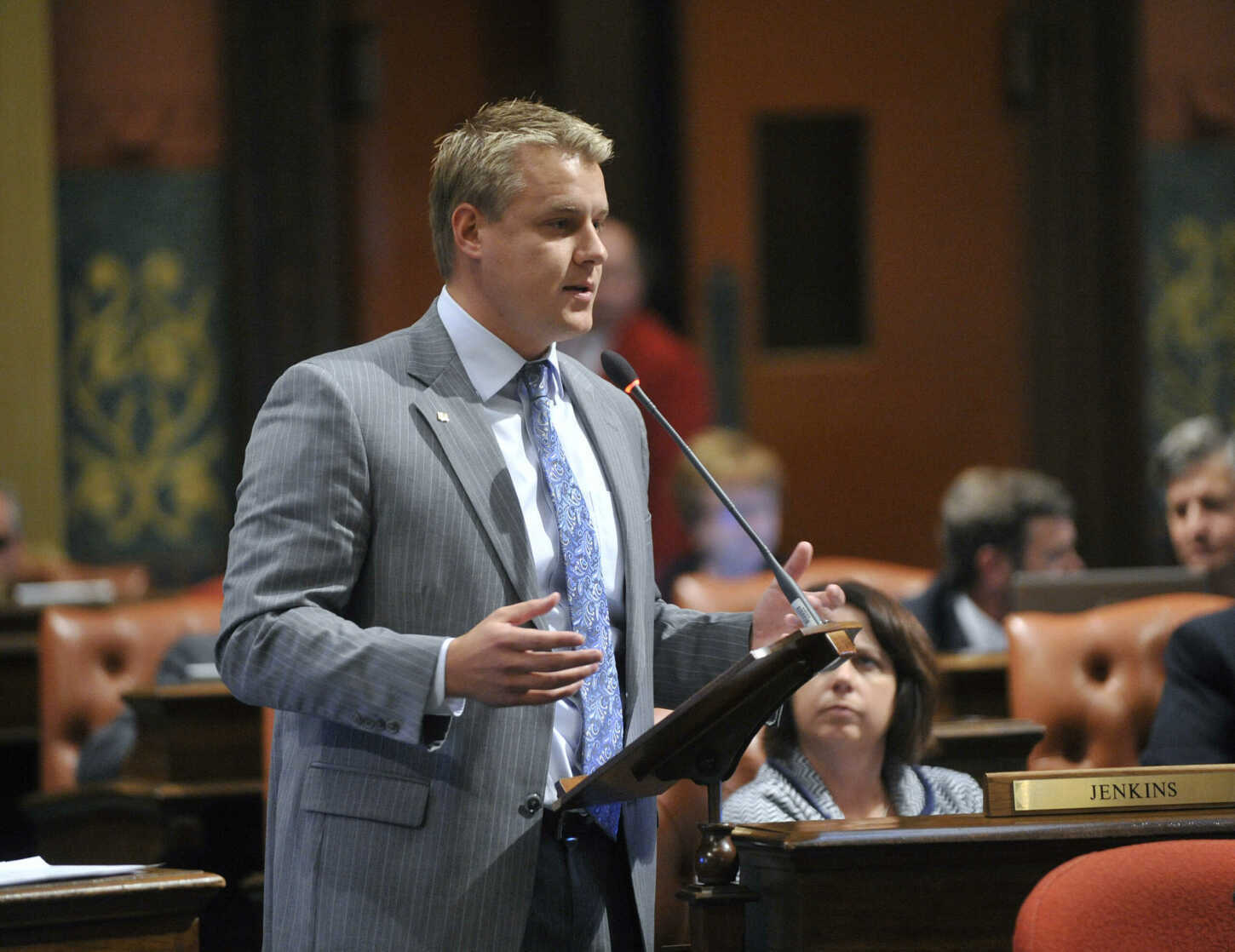
Sam Singh (D-East Lansing) and Frank Foster (R-Petoskey) introduce an amendment to ELCRA to include sexual orientation and gender identity.
“Check your politics at the door on this one and do what is right for the state,” said Foster, whose bill would have added sexual orientation. By that point he had already lost his primary. Foster tells Time he has no regrets.
“Modernizing Michigan’s Elliott-Larsen Civil Rights Act is long overdue and necessary if Michigan is to attract and retain talent,” said Allan Gilmour in his testimony. Gilmour, an openly gay former Ford executive and former president of Wayne State University, became the highest ranking corporate leader in America to come out publicly in an interview in this publication.
Kaplan of the ACLU testified it would be wrong to leave out the transgender community, noting how many calls his office receives regarding discrimination based on gender identity.
“When it comes to legal protections for marginalized and targeted groups of people, we cannot compromise,” State Rep. Tim Greimel (D-Auburn Hills) said in late 2014. Greimel, leader of the House Democratic Caucus, was expressing opposition to an ELCRA amendment stripped of protections for transgender people.
2014:
Republican Gov. Rick Snyder expresses support for adding LGBTQ+ protections to ELCRA and encourages the state legislature to take up the issue.
2014: Future Michigan Attorney General Dana Nessel argues in front of the federal district court on behalf of April DeBoer and Jayne Rowse, who sued the Snyder administration to turn over Michigan’s ban on same-sex marriage. The case was later combined with three others in the Obergefell v. Hodges Supreme Court case, which legalized same-sex marriage nationwide in 2017.2015:
Religious Freedom Restoration Act legislation is introduced. If enacted, RFRA would have legalized discrimination in accordance with one’s religious belief.
In the first of two attempts to put the issue before the voters, Nessel launches the Fair Michigan ballot initiative. Nessel was co-counsel for the DeBoer family in the marriage equality ruling argued before the U.S. Supreme Court. The proposal would have amended the state constitution.
“All worthwhile civil rights battles must start somewhere and this effort is no different,” Nessel said at the time, upon announcing the controversial ballot initiative would end. “Unfortunately, women and the LGBT community will not receive equal protections under the constitution in 2016, but this does not mark the end of my efforts to amend the constitution to guarantee that everyone is equal. I am committed to solving this critical problem in Michigan.”
2018-2021: The Tide Turns
Several of those interviewed commented on the significance of election 2018’s Proposal 2, powered by Voters Not Politicians activists. The passage of this initiative would end Republicans’ stranglehold on the state legislature. Not to be forgotten is Michigan Supreme Court justice Elizabeth Clement’s role in ensuring the proposal appeared on the ballot. A Republican and Snyder-appointee, she told Pride Source in 2019 she was booed at her party’s convention for her action.
May 21, 2018:
By a 5-0-1 vote, the MCRC issues an interpretive statement on the meaning of “sex” in ELCRA. The motion is presented by Commissioner Alma Wheeler Smith. In a 19-page opinion, Attorney General Bill Schuette calls the ruling invalid. Within days, the MCRC responds that they will continue to hear cases of LGBTQ+ discrimination.
2018:
Gretchen Whitmer defeats former AG Schuette and is elected governor. Nessel is elected attorney general, becoming Michigan’s highest ranking openly LGBTQ+ elected official.
Jan. 2019:
Gov. Whitmer signs an executive directive prohibiting state employment discrimination on grounds of sexual orientation and gender identity. In her first State of the State address, Whitmer discusses amending ELCRA.2019:
The Equality Act is introduced at the federal level. It would effectively amend the Civil Rights Act of 1964 to include protections for LGBTQ+ people. On May 17, the bill passes the House. The U.S. Senate does not act. It continues to be reintroduced.
2020:
The Fair and Equal ballot initiative is launched. With broader support than the first attempt, yet with some of the same lingering criticism, what appeared promising became a casualty of the Covid-19 pandemic. Despite a huge push to collect electronic signatures, the Michigan Supreme Court ultimately ruled they were inadequate in number.
2021:
Fair and Equal Michigan releases a scathing statement criticizing the Board of Elections’ decision.
Jey’nce Poindexter was one of the four chairs of Fair and Equal. She is director of communications for the Trans Sistas of Color Project, case manager for the Ruth Ellis Center and manager of the Kelly Stough Project. She said amending ELCRA has been a “personal passion” since the mid 2010s.
“I literally went to my family and had them sign petitions,” Poindexter said of her dedication to the Fair and Equal cause. “I went to barbers, corner stores. To tell you the truth, I even went to the street boys, the dope boys in the hood, and they signed the petitions because what I wanted to do is when they were turned in, I did not want them to just see the signatures of community members, I felt like that was easy.” She said she wanted to see the signature of “Joe Shmo,” who's also a voter.
Poindexter called amending ELCRA “gratifying.” At the same time, she said, “I'll be honest with you. amending the Elliott-Larsen Act will not solve all of the community's issues, particularly Black and Brown people. We're always at the lowest end of the totem pole. When change happens, it doesn't really impact all of our lives. But it gives us a foundation; it gives us recourse through the judicial system; it gives us a leg to stand on.”
Jan. 2021:
Michigan is ranked among lowest in HRC’s annual State Equality Index.
2022: An All-Blue Trifecta
Seven openly LGBTQ+ state legislators are elected, many more are candidates. Democratic majorities rule the House and Senate for the first time in 40 years. Gov. Whitmer, a steadfast ally, is reelected by a wide margin.
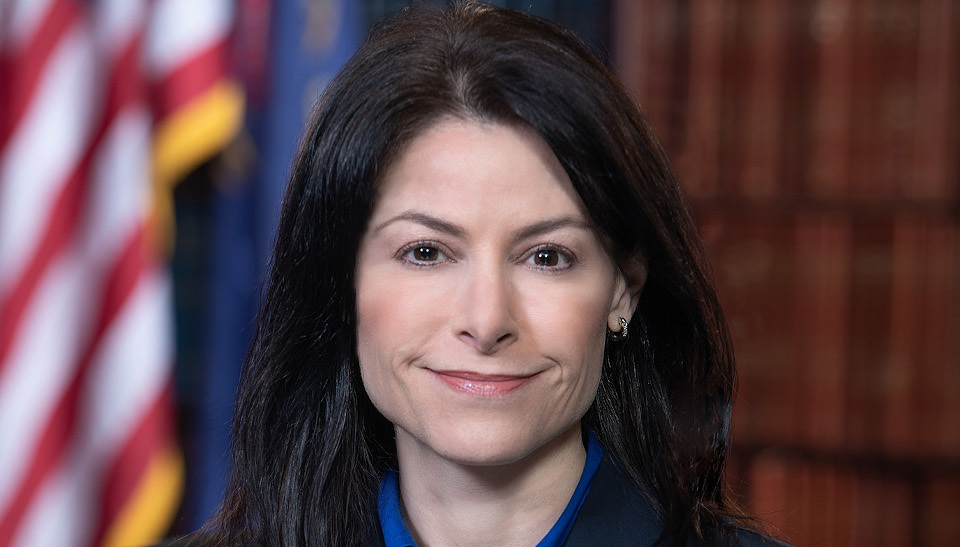
July: After out lesbian AG Nessel argues in front of the Michigan Supreme Court, the justices rule in a 5-2 decision in the Rouch World case that “sex” is inclusive of sexual orientation and gender identity in ELCRA. Gov. Whitmer calls it “a monumental victory.” The majority opinion is written by Snyder-appointee Clement.
2023: Michigan Dems Take Action
Jan. 12:
State Sen. Jeremy Moss (D-Southfield) and State Rep. Jason Hoskins (D-Southfield), Michigan’s first Black and openly gay state legislator, introduce legislation that would amend ELCRA.
The MCRC adopts a resolution in support of amending ELCRA, introduced by that body’s first openly LGBTQ+ commissioner, Luke Londo, an Independent.
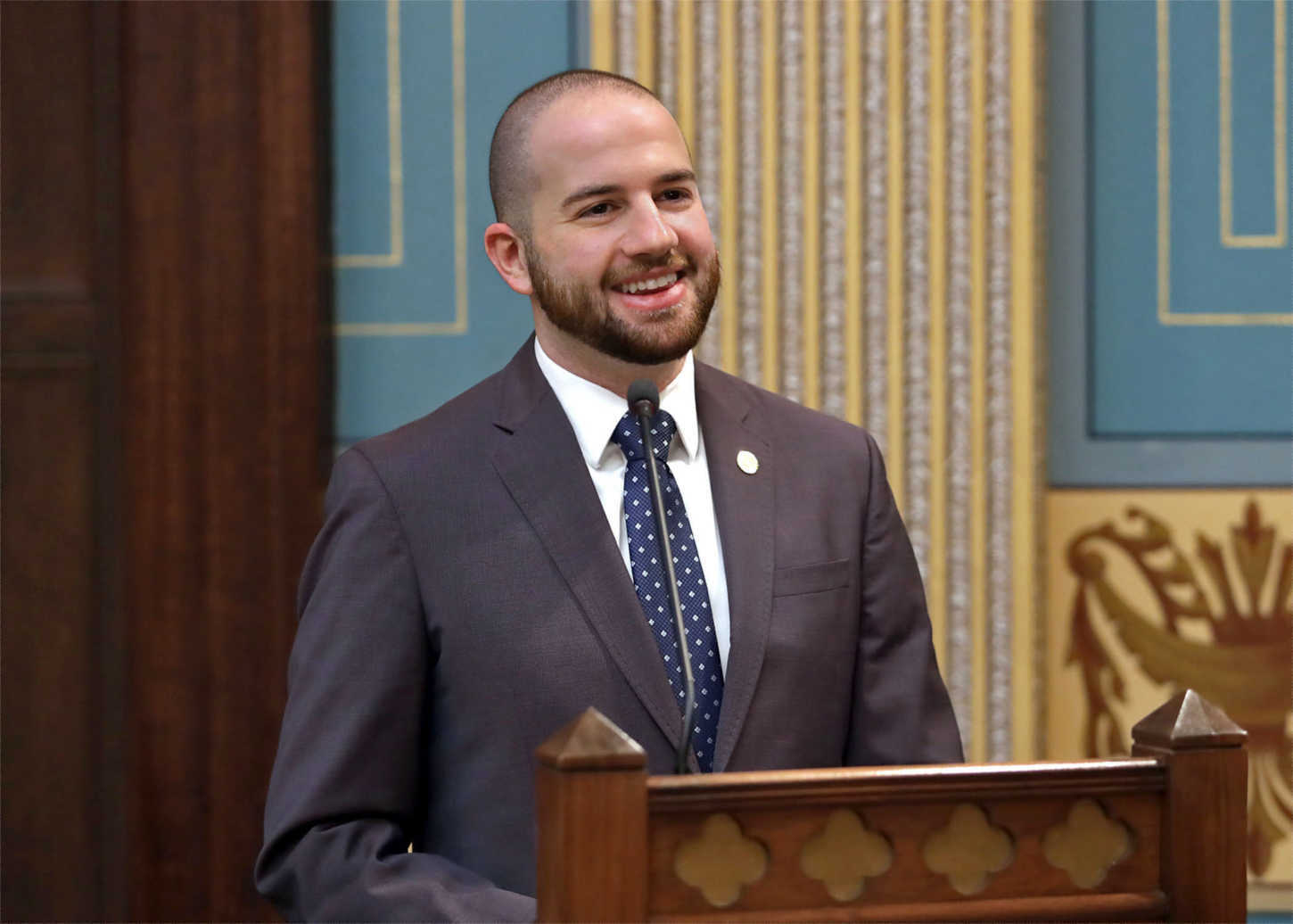
Sen. Jeremy Moss. Courtesy photo[/caption]March: SB4 is adopted by the Senate in a bipartisan 23-15 vote, with three Republicans joining the Democrats. HB4003 is adopted by the House in a bipartisan 64-45. Of the eight Republicans joining their Democratic colleagues is Bill Schuette (R-Midland), son of the former attorney general.
Moss said he felt the weight of the moment. And although he was the one running through the tape, it was a matter of passing the baton from person to person, and he paid respect to all those who came before him.
“We had a champagne toast in [Senate Majority Leader] Winnie Brinks’ office with our Democratic caucus after the bill passed,” Moss said. “And what I said was, all those advocates from the first Pride parade in Detroit in 1972 to Jim Dressel moving this without success in 1983, to Jeff Montgomery helping to establish Equality Michigan to put this issue forward, to ACLU taking in all the claims of discrimination when no one else could — all those people were waiting for us. All those people were waiting for our majority to put it on the board for a vote. And I looked in the eyes of our entire caucus and said, 'Please know what an impact you had in this moment — that 50 years and more of LGBTQ folks were waiting for us.'”
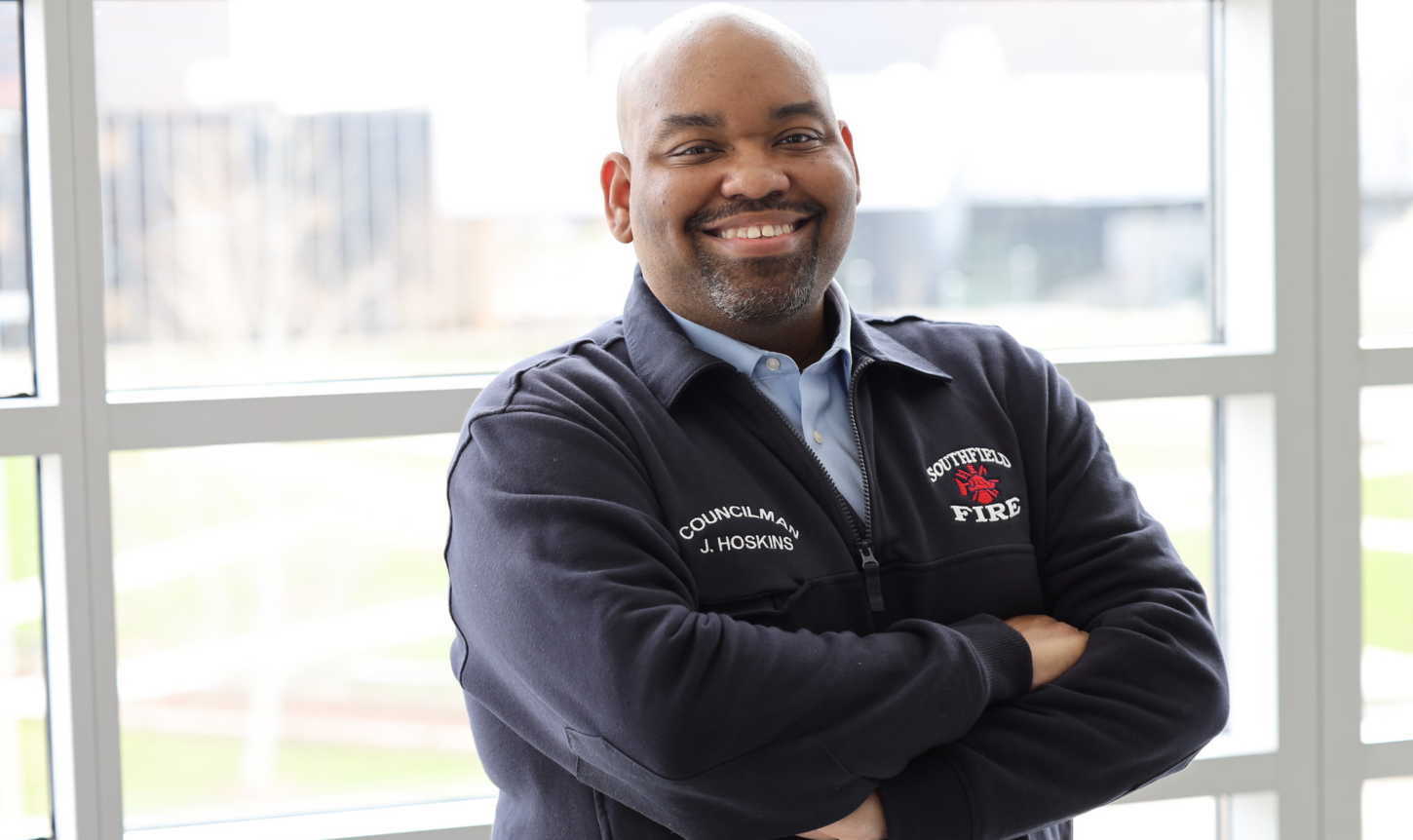
Hoskins echoed that sentiment, adding, “I know there is still a lot of work to do. Despite the progress that has been made towards LGBTQ acceptance in recent years, discrimination and prejudice are still prevalent in many areas. I’m hopeful that with passing legislation like this, we will be able to chip away at the discrimination and prejudice our community faces.”
Kolb told Pride Source amending ELCRA “was personal to me when I was in the legislature. I was able to work on this issue, and I wish we could have gotten it done then, but we worked on it and we got movement on adding more sponsors to legislation and having more and more dialogue. But unfortunately, it took a lot longer than anyone had hoped, but that doesn't take away from the meaningfulness of passing it and having the governor sign it.”
“My message really is that elections really do matter,” he added. “It's why we have to get out there, organize and get people to the voting booth so that they do vote, and we have a Michigan that is reflective of the entire state and to every community and every family that's here in Michigan.”
March 16, 2023: Whitmer Makes It Official
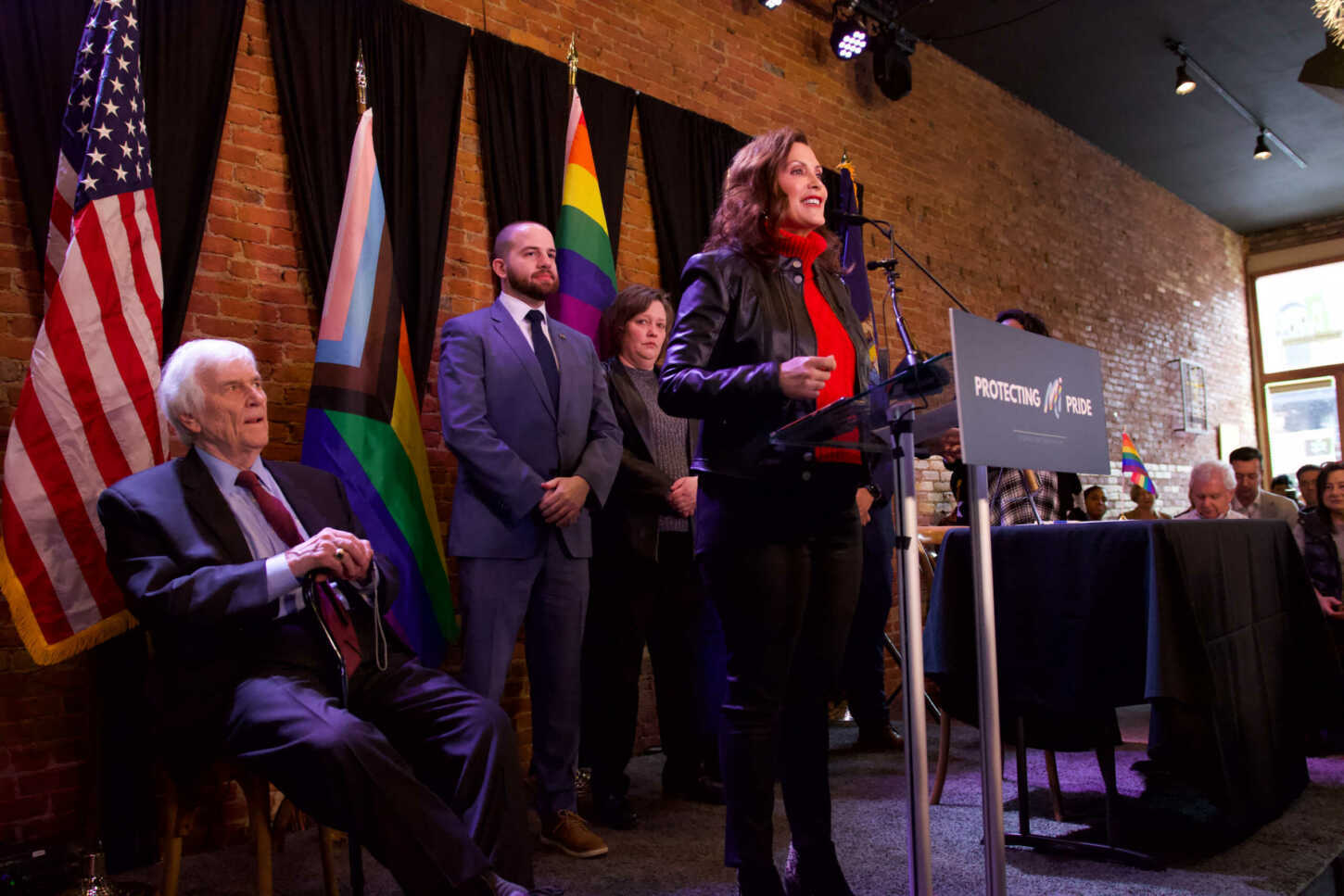
Gov. Whitmer makes good on her promise to sign the legislation at a ceremony at Urban Beat in Lansing where she stands beside Mel Larsen, for whom the 1976 act is named. Whitmer’s openly gay daughter, Sherry, is in the room.
“We would not be here but for the voters of Michigan,” Whitmer said. “We would not be here with all the organizations that fought so hard to educate and to persuade and to build coalitions. We would not be here, but for all the people on this stage, and we would not be here if we did not have both Senate Majority Leader Winnie Brinks and Speaker Joe Tate.”
Whitmer pauses her remarks to notice the tears of happiness in the eyes of the state legislature’s LGBTQ+ caucus.
“This day has been a long time in coming. You could say, to quote one of our own Detroit natives, Lizzo, ‘It is about damn time.’ I’m proud to have been a longtime ally of the community. The issue’s personal for me too now. I've always been the ally, but I'm also the proud mom of a gay woman. I work with members of the LGBTQ+ community. My family and my team are freer today than they were yesterday.
“When the United States Supreme Court affirmed the constitutional right to marriage equality, President Obama said that the progress on the journey to equality comes in small increments, but sometimes there are days when that slow, steady effort is rewarded with justice that arrives like a thunderbolt. In Michigan, we are making our own lighting. I am so proud to be here and I'm excited to put our state on the right side of history. You ready?”
And with that, Whitmer signs the bill. The patchwork approach to LGBTQ+ protection against discrimination is over as Michigan
becomes the 22nd state to provide LGBTQ+ civil rights protections to its citizens.
Next Steps
“This is exactly what Michiganders voted for last November,” said Erin Knott, executive director of Equality Michigan. “This is the message that the people here in our state are trying to send to the rest of the country: Hate has no room here, no place here. We are a welcoming and inclusive state.”
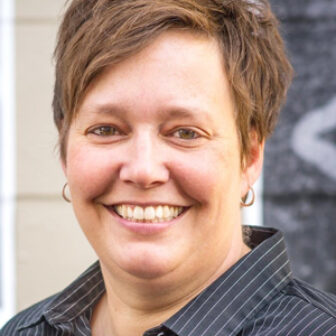
Knott said she barely had time to think about what it means to her and her partner, Amy.
“I don't stop,” Knott said. “My head is always on. I'm constantly thinking about the next step. As we were watching the vote happen, we then shifted gears and we talked about, 'How do we get a conversion therapy ban on the books? What about eliminating the gay or trans panic defense?' I think that you're gonna see Equality Michigan and the Hate Won't Win coalition rolling up our sleeves. We're not taking a breath. We're gonna celebrate, we're gonna rally around next week when the bill is signed, and we are going to continue to make sure that we don't lose any momentum that we have, because nothing is guaranteed.”









